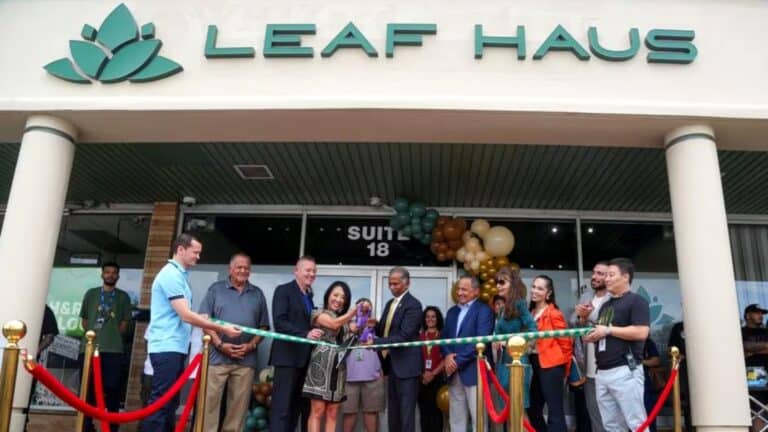 The City Clerk today accepted two sets of petitions intended to revoke Detroit’s new medical marijuana dispensary licensing and zoning programs. Citizens for Sensible Cannabis Reform (CSCR) member Greg Pawlowski submitted the petitions before 9AM this morning, March 1. The Clerk’s office has stamped and counted the petitions, determining that each separate set contains more than 4,055 signatures as required by referendum law.
The City Clerk today accepted two sets of petitions intended to revoke Detroit’s new medical marijuana dispensary licensing and zoning programs. Citizens for Sensible Cannabis Reform (CSCR) member Greg Pawlowski submitted the petitions before 9AM this morning, March 1. The Clerk’s office has stamped and counted the petitions, determining that each separate set contains more than 4,055 signatures as required by referendum law.
Detroit’s City Council passed two ordinances, one in October and another in December, intended to slash the number of businesses in the city distributing medical marijuana to patients who are certified by a physician and licensed by the state. The ordinances are unduly harsh, claim advocates and business, and impose restrictions on medical marijuana distribution centers that are more strict than any other commercial land use authorized by the city. Advocates and the Reform organization submitted one set of petitions per ordinance.
“The Detroit City Council inexplicably passed unworkable and dysfunctional ordinances that compromise the many existing distribution establishments, as well as the patron patients who have come to rely on these establishments as their primary source of medication,” said Jamie Lowell, Treasurer of CSCR. “The city’s current plan also would severely limit the ability for citizens and aspiring entrepreneurs to take advantage of this unique opportunity to participate in the dynamic emerging cannabis industry.”
March 1st was to be the first day of the new licensing program; the rules of referendum state the implementation of the ordinance in question has to halt until the referendum is resolved, either with a refusal of petitions from the Clerk or a by a vote of the people. If the petition requirements are satisfied, Detroiters would cast their vote on the referendum issues during the August primary election. “Citizens for Sensible Cannabis Reform was created because Detroit’s Medical Marihuana Caregiver Center ordinances are not good for patients, not good for the city and they constitute bad leadership in the region,” said Pawlowski, a Detroit resident. “The ordinance creates difficult standards and, if enforced, would bring chaos and criminality into patient’s lives.”
Detroit’s City Clerk was unavailable to discuss the rollout of their new dispensary licensing program, but former Congressional candidate George Brikho is confident the referendum process will be respected.
“Why are they limiting access to medicine for patients?” Brikho asked. “Our small businesses have created a positive impact in Detroit. Overregulation will destroy patient participation in a regulated market. Some patients will go from protected to helpless. These ordinances are an example of broken government; patients and families will pay the price, and that is why we filed our petitions.”
The City Clerk has ten days to determine how many of the signatures on each set of petitions are valid, and report that number to the Reform organization, who then have 15 days to submit a number of signatures to satisfy the shortfall. “Fortunately, the democratic process in Michigan allows the citizens to weigh in directly when the elected officials do not satisfy the will of the people,” Lowell said.
“We complained about these ordinances to Council for months. Issues regarding patient access and safety were not addressed,” explained journalist and advocate Rick Thompson. “Legal recourse exists to challenge these poorly derived ordinances, and it has been initiated.”
“Policies based on fear usually have a tendency of being wrong for society,” added Pawlowski. “We are blessed to be in Detroit which views cannabis more openly; some may not like it, but let’s take the dispensary issue to the people and let them decide.”
Involved in leading the petition drive were Pawlowski; George Brikho of Evergreen Management; Jamie Lowell of 3rd Coast Dispensary and the MILegalize organization; and TCC Editor/MINORML Board member Rick Thompson. A number of attorneys, professional signature gathering companies and distribution centers in the city participated in creating the petitions and collecting the signatures.







